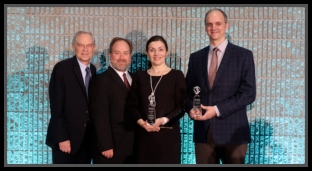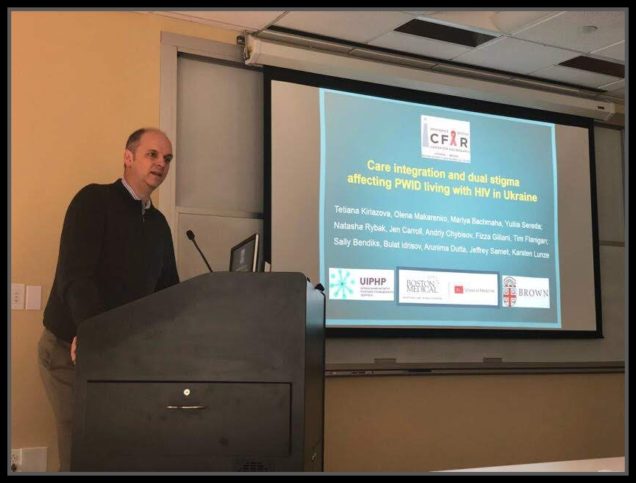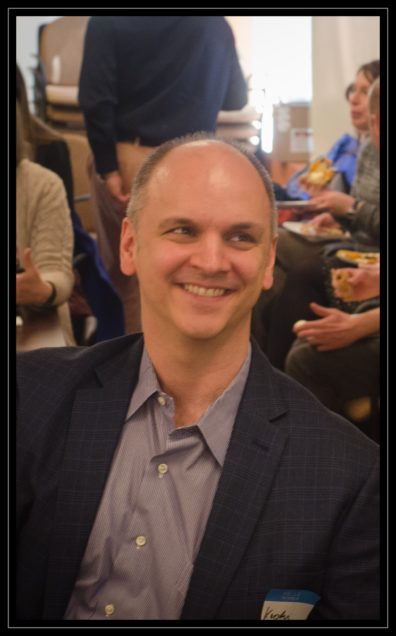Spotlight on…Karsten Lunze
Spotlight on…Karsten Lunze
Karsten Lunze, DrPH, MD, MPH, an Assistant Professor of Medicine at Boston University School of Medicine
As told to URBAN ARCH Admin Core staff, June 2018
Tell us more about your background. How did you become interested in understanding risk behaviors of HIV-infected people who use drugs?
Initially I started doing clinical work after medical school, which I found fascinating. However, it always struck me as a limitation that we spent immense resources on single patients, whereas we could have a much larger impact on a whole population with less investment. This spurred my interest in public health and prevention. When practicing medicine in Baltimore and then eventually in Boston, it only confirmed that sentiment.
Coming to the United States in 2007, I did not have any experience with addiction care or research, because most European countries, especially Switzerland and Germany, had addressed the opioid crisis by then through consequently implementing pragmatic policies and effective harm reduction measures. This essentially dealt with the opioid crisis in Europe. I got involved in HIV prevention work here, especially with Dr. Samet’s group in Russia, which was related to substance use.
My work in stigma and post-conflict health systems began because these issues persist in all of our work. Whenever we deal with vulnerable or marginalized populations, they bring up the issues of stigma related to their substance use, HIV, or being a sexual minority. To these people, these issues are tremendously important and problematic almost universally. Even in the US, where civil liberties are highly valued, the environment in which they live, work, and receive healthcare would ideally be based on human rights, but so often this is not the case.
You did your medical training in Germany. What was it like in Germany as compared with the U.S. with respect to your clinical and research experiences?
Medicine in general is very global, and I think the standards of clinical care are similar across Europe and the US. The main difference in research is that efforts and support around research are more organized in the US, and there is a better understanding of the need for dedicated time to produce quality research. In Germany, most medical research still happens at a very high level, but a lot of research is done after hours at the expense of quality of work-life balance.

You and your wife, Dr. Fatima Lunze, recently received the Victor Sidel and Barry Levy Award for Peace from the APHA for your work on the NGO Health for the Caucasus. Tell us about this.
We initially responded to a hostage tragedy in a school, with many victims. The immediate medical trauma response was adequate, but in environments that are affected by war, civil war or other political conflicts, not only the immediate trauma takes a toll on people. More importantly, the health systems suffer. Physical rebuilding, and bringing equipment and specialists, would not address the lack of trained healthcare providers – so capacity building was our main focus. The main benefit of that the APHA award was the attention that the work received, and it gave us a public platform to make a point for health workers’ role in prevention of conflicts. We founded the NGO as an entity to be independent from state and even academic structures, because especially in settings affected by conflict, public health and medical workers need to demonstrate independence.
Another endeavor that we are trying to implement is a management and leadership curriculum that works with people at all levels of the healthcare system. Not only the official leaders, but also people who lead clinical or administrative units to give them tools and methodologies to effectively lead and manage, and take responsibility for and feel accountable for their work.
What have you enjoyed most about your work on your CFAR Developmental Award, “Dual Stigma as Barrier to Integrated HIV Treatment among HIV-Positive PWID in Ukraine”?
The most important part of the CFAR development grant was to connect with the teams at Brown and in Ukraine to create the basis for new projects. It was a great experience for many reasons. First of all, Ukraine is a beautiful country with beautiful people. Second, I discovered that our partner group, the Ukrainian Institute on Public Health Policy, has impressive capacity to implement the research we are interested in – recruiting people who are at the margin of society, who use substances, who live with HIV and often TB, and other stigmatized conditions. Third, I found it beneficial to partner with a group at Brown who had relevant experience working in Ukraine and who have contributed their perspective to this work. It was a meaningful and interesting project with great people, and was a tremendously enriching experience.

You have worked in so many different countries. How do you think this informs your research goals?
It is amazing how medicine and global health are really universal, and the pressing issues are very similar. However, the contexts of these issues differ. A common theme is that officials know what to do for public health, they know how to do it in most cases, and yet it does not happen. This is usually rooted in political and/or cultural reasons. The lesson to take away from the work I have done so far is to accommodate for the context even more intensely than we currently do. For example, we tend to measure our research constructs with the instruments we are familiar with, but we aren’t really certain whether they capture what we intend to measure. It takes some effort and costs, but it should be worthwhile to focus attention on validating the instruments we are using for our research.
Tell us something surprising about yourself.
I wanted to become a pilot ever since flying with my uncle in Indiana back in the eighties. But when I graduated from high school 25 years ago to the day, Lufthansa had a crisis and temporarily halted pilot training. So I went to medical school, which was a fortunate replacement. To make up for it, on my recent fortieth birthday, I brought my wife Fatima to an airstrip in Arizona, rented a plane (with instructor), and took her on a loop above Scottsdale. I loved it – she called flying with trustworthy me “her most courageous vow of love ever.”
